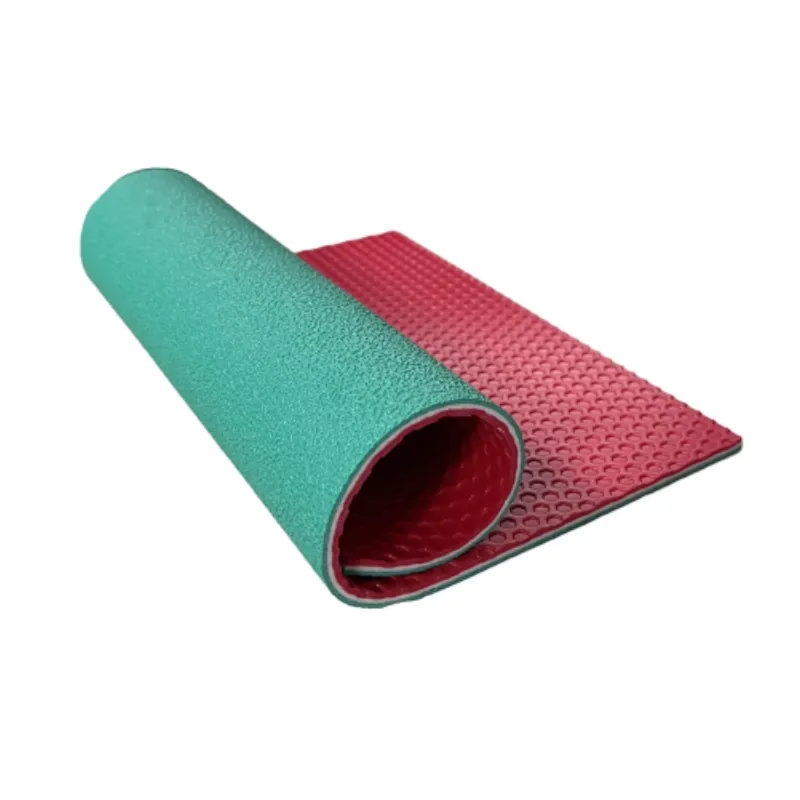commercial flooring systems
Commercial Flooring Systems Enhancing Spaces with Style and Functionality
In the dynamic world of commercial interiors, the flooring system is one of the most vital aspects of design and functionality. Commercial flooring systems refer to the various types of flooring solutions specifically engineered for high-traffic, durable applications found in business environments such as offices, retail spaces, hospitals, and educational institutions. These systems not only enhance the aesthetic appeal of a space but also contribute to its practicality and longevity.
Types of Commercial Flooring Systems
When it comes to commercial flooring, there are several options to consider, each with its own set of advantages. Let's explore some of the most widely used types
1. Carpet Tiles Carpet tiles are a popular choice in office environments where comfort and noise reduction are priorities. They offer versatility in design and can be easily replaced if damaged. With myriad colors and patterns available, carpet tiles enable businesses to create a unique ambiance that reflects their brand identity.
2. Vinyl Flooring Vinyl flooring has become increasingly popular due to its resilience and ease of maintenance. It is available in sheets, tiles, and planks, providing flexibility in design. Vinyl can mimic the appearance of more expensive materials like wood and stone while offering exceptional durability, making it suitable for high-traffic areas.
3. Laminate Flooring Laminate flooring is another attractive alternative for commercial spaces. It offers the look of hardwood without the associated maintenance and cost. Laminate is resistant to scratches and stains, making it suitable for bustling environments. Additionally, its installation is typically straightforward, reducing downtime during renovations.
4. Rubber Flooring Often found in gyms, hospitals, and schools, rubber flooring is valued for its slip-resistance and shock-absorption properties. This flooring system is low-maintenance and can easily withstand heavy equipment and foot traffic. Additionally, rubber flooring comes in vibrant colors, which can enhance the overall aesthetic of a space.
5. Concrete Flooring For a more industrial look, polished concrete flooring is a go-to option in modern commercial settings. Its durability is unmatched, requiring minimal maintenance while being able to withstand heavy loads. Polished concrete can be stained or sealed to fit various design aesthetics, making it a versatile choice for many businesses.
Choosing the Right Commercial Flooring
commercial flooring systems

When selecting the appropriate flooring system for a commercial environment, there are several factors to consider
- Traffic Levels Understanding the expected foot traffic can help determine the most suitable flooring material. Areas with heavy traffic may require more durable options such as rubber or vinyl, while medium-traffic areas could benefit from laminate or carpet tiles.
- Purpose of the Space The intended use of the area significantly influences flooring choice. For example, an office may prioritize aesthetics and comfort, whereas a hospital requires flooring that promotes hygiene and safety.
- Maintenance Requirements Different flooring options have varying maintenance needs. Businesses must consider the time and resources they are willing to dedicate to upkeep when choosing a flooring system.
- Budget The overall cost of materials and installation is an essential consideration. While it may be tempting to opt for the cheapest option, investing in quality flooring can lead to long-term savings through durability and reduced maintenance costs.
The Impact of Flooring on Business
The flooring in a commercial space does more than just provide a surface to walk on; it can significantly influence the perception of a business. An aesthetically pleasing and functional floor can enhance employee productivity, create a welcoming environment for clients, and ultimately reflect the brand's ethos. Moreover, choosing eco-friendly flooring solutions can demonstrate a company's commitment to sustainability, appealing to an increasingly environmentally conscious consumer base.
Conclusion
In conclusion, commercial flooring systems are a fundamental component of any business environment. With various options available, companies can select flooring that aligns with their operational needs, aesthetic preferences, and budget considerations. The right flooring can transform a space, offering both functionality and aesthetic appeal, while contributing to the overall success of a business. Investing in quality commercial flooring is not just about immediate results; it’s about laying the foundation for a thriving future.
-
Commercial Parquet Flooring: Considerations of Aesthetics, Practicality, And SustainabilityNewsApr.15,2025
-
PVC Sports Flooring: Performance, Applications, And Development TrendsNewsApr.15,2025
-
PP Interlocking Floor: a Paving Solution That Combines Functionality and SustainabilityNewsApr.15,2025
-
Plastic Flooring Tiles Outdoor: Practicality, Sustainability, And Development ProspectsNewsApr.15,2025
-
On the Application of PVC Flooring for Badminton Court in Badminton VenuesNewsApr.15,2025
-
Commercial Wood Flooring: the Balance Between Aesthetics, Functionality, And SustainabilityNewsApr.15,2025
-
The Ultimate Guide to Futsal FlooringNewsMar.27,2025

